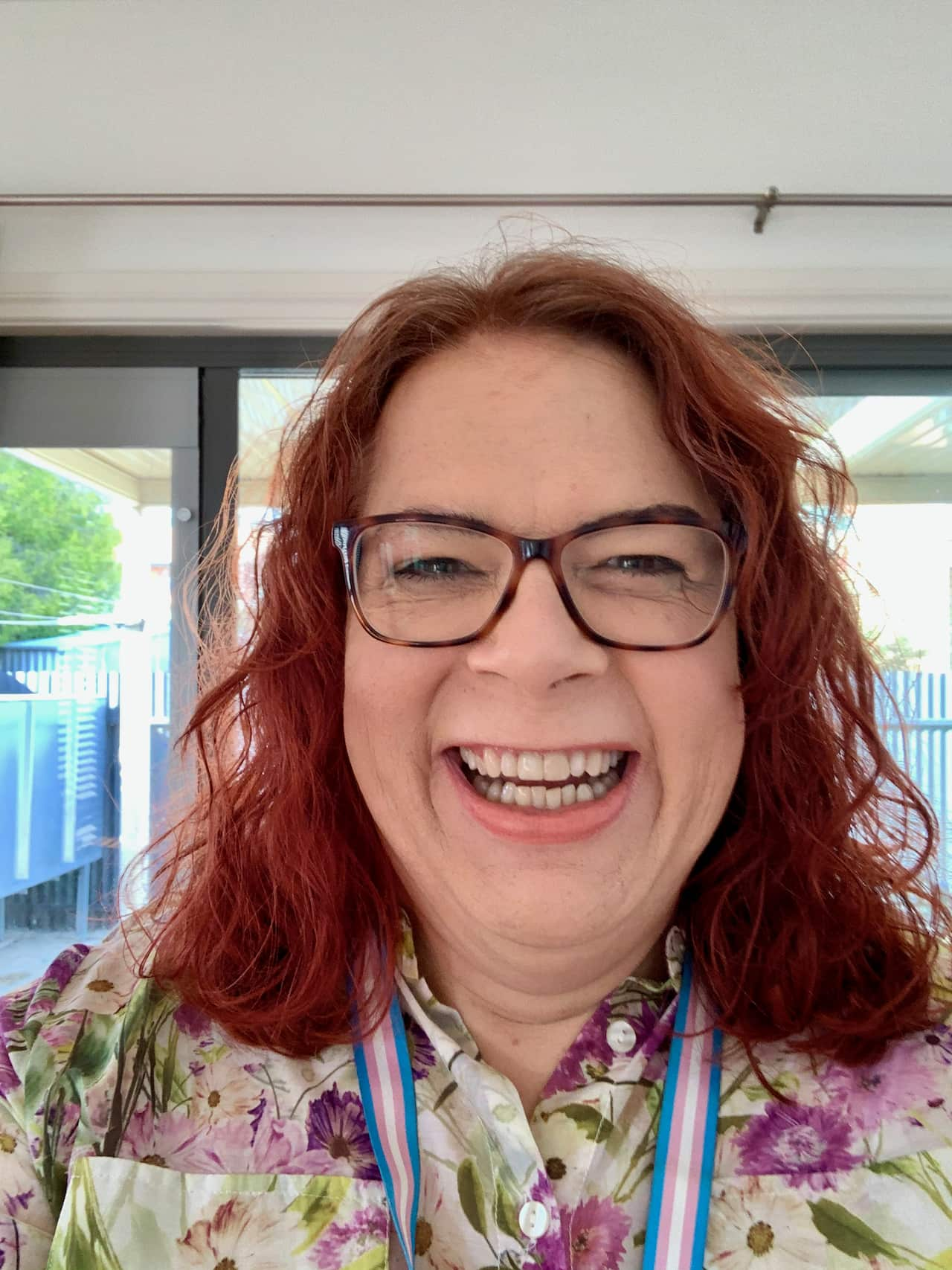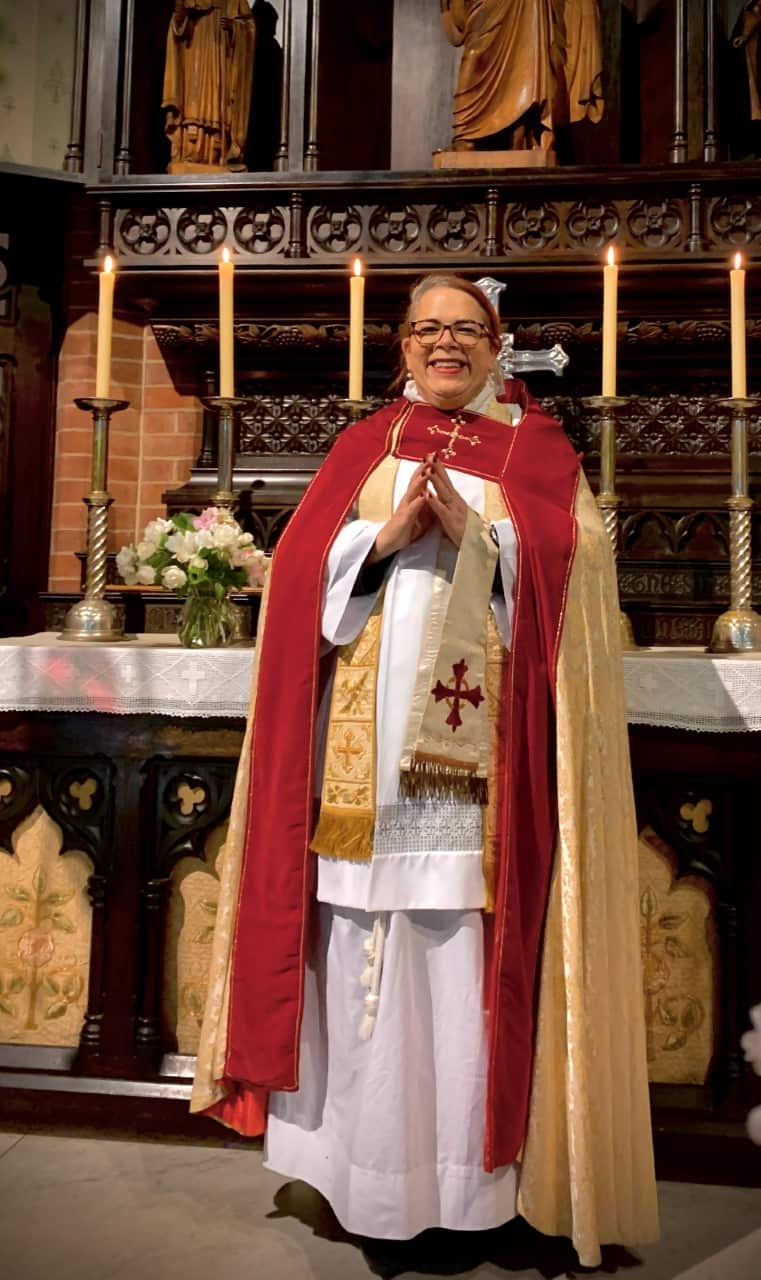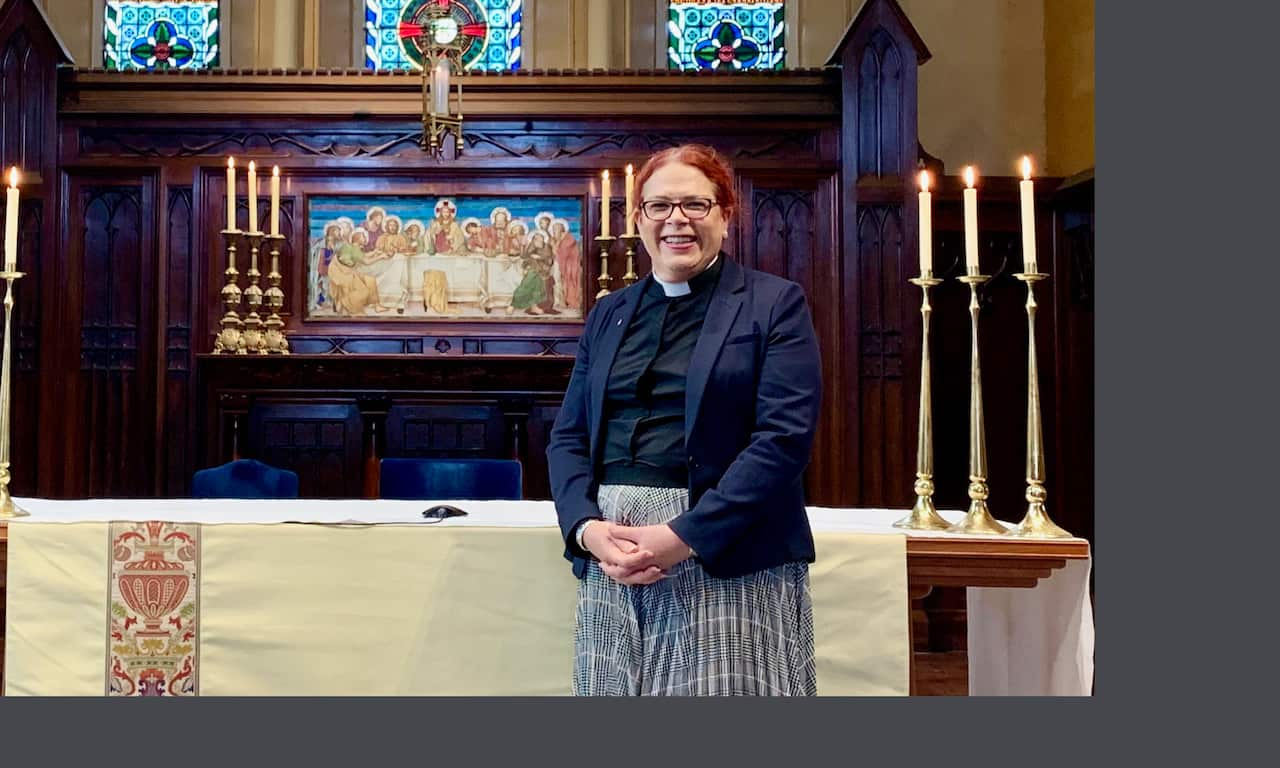Ever since I was a young child, I struggled with my gender identity.
At the time there was no such thing as the internet. I was alone, and I thought I was the only one in the world who felt this way.
My 1970s and 80s childhood and adolescence were characterised by great feelings of guilt and shame. I tried to live as normal life as I possibly could.

I joined the Navy when I was 16. It was a very structured life. When you are at sea you don’t have terribly much time for thinking. Afterwards, I joined the NSW Police, doing the communications work that I began in the Navy. But that didn’t keep the genie in the bottle.
I was hoping by doing all this the 'monster' inside of me would go away, that somehow I would be cured of this pain and continual disturbance that I carried around, day in and day out.
I found my first girlfriend in 1992 and three weeks later we were engaged and five months later we were married. I made myself a promise: "That’s it, we’ll just put the cork in this bottle and that’s the end of that." Then followed the next great moment in my life when I was ordained an Anglican priest in 1996.
These great occasions in my life were an attempt by me to try to bring order to a really chaotic life on the inside.

Over the next 10 years, the more I tried to suppress these feelings, the psychological stress became more intense, more uncomfortable, and harder to live with and manage.
I needed a break and this precipitated leave of active parish ministry. I said my last mass at Adelaide’s McLaren Vale Parish in 2005. It was the first time in my life I no longer had a structure around me to be a barrier or a framework to hang my life. So, I had an inkling, then, that there was now nothing stopping me from transitioning except my personal life.
By this stage I had started to get the inner language to understand that I was not alone nor was there anything wrong with me.
When I came out to my wife Jane she was the first person I had ever told. I thought I was going to lose everything. It turned out I actually gained everything.
When you carry around with you the fear of rejection for nearly half a century then it is an absolutely terrifying experience. But equally, it is so liberating when you discover that people are so much better than my anxious mind anticipated them to be.
Jane has stuck with me and our marriage has thrived. She’s straighter than a ruler. I’m more bent than a slinky. Our marriage has continued to grow because we both made the decision to continue to love each other.
Transitioning gave me the opportunity to be the best version of who I might become.
The best way to describe it is it’s as natural as breathing in and out.
Before I spent my whole life dragging around a massive anchor on a heavy chain. Every single moment of every single day. I’ve never been to prison. But I understand what it must feel like to be released from prison. I have not been given a second chance at life. I’ve been given a chance to truly live my life.

When I tried to come back to the church, institutionally I was excluded and rejected but at the local parish level it’s absolutely the opposite. I cannot say mass or do baptisms or weddings, but I have been given permission to begin preaching again. I am loved and cherished by my parish community in an absolutely amazing way. I have flourished because of their love.
I used to be terribly judgemental because rules and institutional structure were the things that kept me safe. Black and white was very comfortable. It was in shades of grey that I actually started to discover the colours of the rainbow. I started being kinder and loving to myself and loving and caring for people in a way that I hadn’t been able to before. I’m able to show the queer community the church is not necessarily the bad, evil, exclusive, judgment place it’s often depicted to be.
As soon as you start hearing a narrative that is not loving, that is judgemental, that creates a sense that somehow you are flawed, or not redeemable - then that is not God; that is a broken down institution. The God of Love exceeds all the boundaries and all the conditions that we have placed around that in the structures of the Church. For the queer community, that is something they really desperately want to know - that no matter who they are in a relationship with, what their identity, no matter their past or their present, it’s unconditional.
I have faith in God rather than in religion now. For the first time I have allowed myself to be loved. It has probably been the most transformative experience of my life.
For the first time I have allowed myself to be loved. It has probably been the most transformative experience of my life.
The power of unconditional love means you can start forgiving yourself. When you do that, then you start looking at every other person in a completely different light.
All of us trip over, and the beautiful thing is that God gives us the strength to stand up again and try again. I think if we keep on trying to love and be loved, and learning the art of forgiving yourself and forgiving others, that’s the gift of God. I don’t know of any greater power than that.
Transitioning has enabled me to be open to that. God loves me just as I am. This is how he created me. This is the truth and it’s a very beautiful privilege to be the person I am today.
As told to Sarah Malik
Sorèl Coward is a social worker, mental health clinician and founder of One Life To Live, an Adelaide based private practice that provides support to LGBTQIA+ people and their families.
Sorèl is part of the Sydney Gay and Lesbian Mardi Gras #WeRiseFor campaign , featuring 10 people reflecting the diversity of the LGBTQIA+ community, sharing their stories and what motives them to rise.
Follow the conversation on SBS Australia socials #WeRiseFor #MardiGras2021 and via sbs.com.au/mardigras.
The 2021 Sydney Gay and Lesbian Mardi Gras live Saturday 6 March 6pm AEDT on SBS On Demand or catch the full parade at 7:30pm on SBS and NITV.

